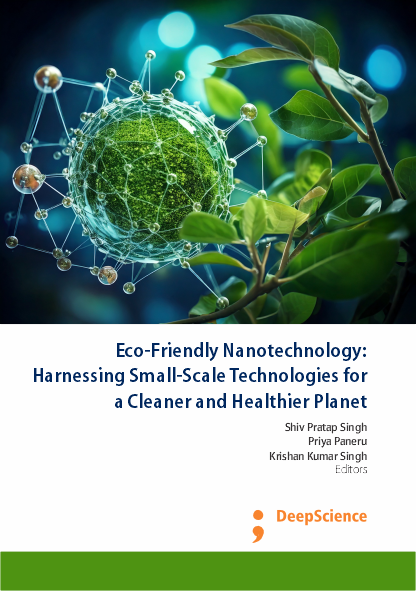Nanotechnology as a paradigm-shifting modality in contemporary agricultural systems
Synopsis
India's conventional farming methods and technologies are no longer sufficient to enhance productivity and are increasingly contributing to environmental hazards. Addressing these environmental challenges is crucial for the well-being of our planet. Traditional approaches to sowing, irrigation, fertilizer application and plant protection have long been under scrutiny for their inefficiencies and adverse impacts. Nanotechnology offers an innovative solution to these issues through the application of nanomaterials, which operate on the low-dose principle. The distinct physical structures of nanomaterials grant them unique properties, setting them apart from conventional materials. This chapter highlights the extensive applications of nanotechnology in agriculture and explores its future potential. Nanofertilizers, for instance, can break yield barriers without causing environmental harm. Similarly, the use of nanomaterials in plant protection can prevent the development of resistance in pests. By integrating nanotechnology into areas such as precision water management, soil and water reclamation, biotechnology, pest surveillance, pest control, next-generation pesticides and food processing, India can achieve unprecedented and sustainable agricultural productivity.
Keywords: Modern agriculture, Nanotechnology, Efficiency, Nanofertilizers, Environment.













